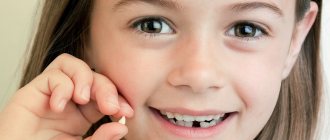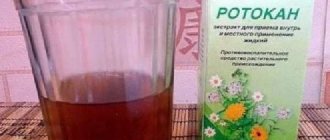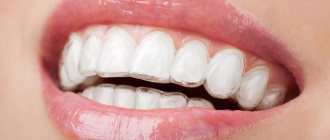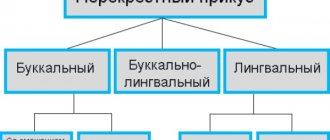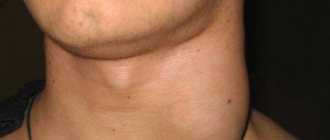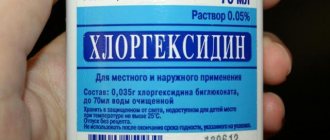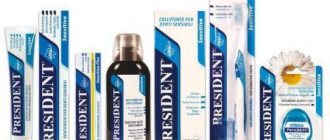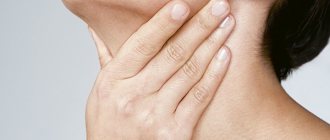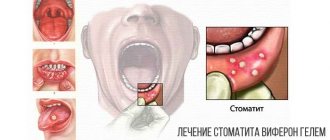2365
Going to the dentist is a real stress for many people. Dental therapy is not always painless, so doctors use various methods of pain relief, ranging from local anesthesia to general anesthesia.
However, this is far from the only reason for the fear of dentists and the menacing buzzing drill that causes slight trembling throughout the body.
Fear, anxious thoughts, muscle tension and psycho-emotional state become an obstacle in the treatment process not only for the patient, but also for the specialist.
All of the above negative manifestations require facilitating a certain procedure. Premedication helps solve this problem.
General overview
Premedication is a medicinal preparatory measure aimed at adapting the body to therapeutic procedures and administering painkillers.
It is used in dental treatment not only in adults, but also in children. To prepare the body, specialists use various medications or a combination of them. What is the purpose of this procedure if anesthesia is still required after it?
The fact is that during dental intervention local anesthesia is more often used, which cannot suppress some components of pain. Their action is aimed at eliminating the pain syndrome itself.
It is impossible to get rid of the autonomic and emotional components of pain using analgesic blockades.
The psychological and emotional stability of the patient is an important component of effective pain management. Not only the choice of product, but also its dosage depends on this.
Many patients behave inappropriately during or before treatment, that is, they react emotionally to existing circumstances. This is expressed by a feeling of anxiety and worry, as well as neurotic fear, insomnia and refusal to eat.
However, the problem is not only psychological instability. This condition can lead to physical disorders and malfunctions in important organs of the body.
For example, the adrenal glands produce steroid hormones (glucocorticosteroids) many times more intensely. The consequence of this condition is an increase in blood pressure and body temperature, the pattern of blood movement through the vessels is disrupted.
All of these factors determine the use of premedication in dentistry. Its task is to provide conditions that will allow the administration of a well-chosen painkiller, prevent negative consequences and bring the patient to a state of psychological comfort.
Local anesthesia in dentistry for children
Local anesthesia is an anesthesia that temporarily blocks the transmission of nerve impulses. This means that during the treatment the child does not feel pain or discomfort. Dentists use local anesthetics as medications, selecting the composition after determining the patient’s allergic reactions.
Local anesthesia for children's teeth is usually carried out in two stages:
- application - for primary reduction of sensitivity;
- injection - administration of an anesthetic composition through an injection of an anesthetic.
Anesthesia for the treatment of baby teeth in very young patients takes place in three stages. The first is application “freezing”. The second and third are injection anesthesia. The first injection of anesthetic is performed with a minimum dose, a drop. Anesthesia takes effect almost immediately, after which the entire volume of the drug is administered.
Rodikova Tatyana
With children 3-4 years old we usually play a fairy tale - based on Frozen or invent our own. First, we smear the gums with “magic ice jam”, then we cast a spell like Elsa “to freeze microbes.” And after that we “make Olaf the snowman” or simply “freeze everything around.” Kids are happy to listen and help, which eliminates tears and whims during dental treatment.
Indications
With the help of premedication, dentists and patients solve the following problems:
- reduce and eliminate psycho-emotional instability;
- prevent the occurrence of a vagal reaction of the body (bradycardia, slow heartbeat);
- provide neurovegetative protection;
- stabilize the patient’s condition and reduce his reactions to external and internal environmental factors that cause agitation;
- prevent various allergic manifestations;
- slow down metabolic processes;
- enhance the effectiveness of anesthetics and prolong their effect.
In addition to the main problems that premedication can eliminate, there are a number of indications for its use:
- Complex and lengthy surgical interventions (for example, osteoplastic surgery), requiring the mandatory use of general anesthesia.
- Implantation of artificial roots into the gums in the form of implants.
- The patient is in a tense, agitated and anxious state.
- Autonomic disorders and physical instability. This could be bradycardia, elevated body temperature, etc.
- The presence of diseases of the respiratory apparatus and cardiovascular system, which increase the patient’s feeling of anxiety and develop complications.
- The patient becomes faint or loses consciousness during a consultation with a doctor.
Causes of development of bottle caries in children and treatment used in dentistry.
Find out more here what to do if the tooth root hurts when pressed.
At this address https://zubovv.ru/lechenie/zubyi/kak-delaetsya-provodnikovaya-anesteziya-v-stomatologii.html we will talk about the types of conduction anesthesia in dentistry.
Contraindications
The main contraindications to the use of premedication include:
- diseases of the filter organ (cirrhosis, hepatitis, etc.);
- renal failure;
- myasthenia gravis is an autoimmune chronic disease characterized by decreased muscle tone and fatigue;
- period of pregnancy and breastfeeding;
- infancy (up to 3 years);
- individual intolerance to the components of the drug.
There is no general and universal list of contraindications for premedication. Restrictions are determined depending on the composition and effect of the drug used.
To prevent negative manifestations of the body, including allergic reactions, it is necessary to collect a detailed medical history of the patient and conduct a number of mandatory studies.
Restrictions
As for the restrictions necessary before premedication and administration of an anesthetic drug, the list is quite long:
- It is prohibited to drink sedatives or alcohol 24 hours before the event.
- Medication preparation is not carried out during pregnancy.
- If preliminary studies and the patient’s medical history determine the presence of contraindications, the selected drug is replaced with another drug.
- Carrying out this procedure to prepare a child requires the mandatory presence of a parent or other close relative who can monitor the child’s condition at home throughout the day.
- After the procedure, some time will be required for recovery, during which it is prohibited to drive a car, use special equipment, or engage in activities that require mental activity and concentration, since the focus of the psyche and consciousness on certain objects is reduced.
- Immediately after drug preparation and treatment, it is advisable to avoid climbing mountains (stairs, hillocks, etc.), walking down the street unaccompanied, and playing sports.
- It is important to exclude work that involves certain serious obligations immediately after premedication, for example, signing important documents, negotiating, caring for a seriously ill person, looking after children.
- During the day you should refrain from legal transactions and any financial transactions.
In children
Different medications are recommended for children than for adult patients. Their action is aimed at reducing the secretion of saliva, reducing emotional and nervous tension, and blocking the urge to vomit.
The premedication regimen is mainly related to the age of the child. Also, when prescribing a dose of the drug, the dentist takes into account the general condition at the time of treatment and the specifics of its development. Preparation for the procedure for children begins in the evening and continues in the morning until visiting the clinic.
- for children under 3 years of age .
- Children from 3 to 6 years old . The night before surgery, Phenobarbital and a sedative containing bromide are usually prescribed. 30 minutes before the start of the procedure, the same drugs and an additional 10 drops are given again. valerian in tincture.
- Children from 6 to 10 years old . They may be prescribed “Barbamil” or “Lipolphen” for the evening, and half an hour before the dental procedure one of these drugs is given again along with vitamin B1.
- Children under 15 years old . The night before the procedure, you should take Diphenhydramine, Barbamil, or Lipolphen, and before the operation itself, Promedol, Aminazine, or Atropine.
Important: drugs that have a depressant effect on the respiratory, excretory and circulatory systems, and mental processes are prohibited for children.
Drugs
In the dental field, 3 groups of drugs are used, with which you can achieve the desired effect:
- sedatives based on herbal ingredients;
- benzodiazepinates;
- a number of chemicals.
In addition, in dental practice, local anesthetic gels and ointments are often used to reduce the reaction to irritants.
Let's look at the groups of medications in more detail.
Herbal sedatives
Sedation is a method of pain relief that can be used to achieve a sleep-like state of peace and tranquility in the patient, which plays an important role in dental practice.
As a rule, drugs in this group are taken orally and are well tolerated by almost every patient.
Side effects are mild or do not appear at all.
- Valerian . A herbaceous plant that reduces the excitability of the central nervous system, relaxes smooth muscle structures and enhances the effect of sleeping pills. Eliminates hysteria, anxiety and fear.
- Corvalol . A medicine presented to the consumer in the form of a colorless liquid with a specific pleasant aroma. Has a sedative and antispasmodic effect. Reduces excitability and tension of the nervous system, making it possible to fall asleep normally. Eliminates anxiety and irritability.
- Motherwort . In common parlance, the plant is called a heart herb, which has a natural sedative effect, normalizes sleep and the emotional field, eliminates anxiety and nervous excitability. Peak effectiveness is achieved with complex therapy.
- Valocordin . A combined drug with a sedative effect. Most often used for nervous disorders, acute and chronic stress. Eliminates increased agitation and irritability, fear, normalizes sleep.
- Valoserdin . A combined medication that has antispasmodic and sedative effects. It has a mild hypnotic effect. Relieves the patient from a neurotic state, attacks of irritability and insomnia.
Analgesic
Analgesics or painkillers of various origins are used in dentistry to relieve pain.
Any of the drugs in this group effectively suppresses the reaction to irritants, reduces local swelling of soft structures and is suitable for eliminating pain in the postoperative period.
- Ibuprofen .
The effect of the drug is identical to aspirin. Has analgesic and anti-inflammatory effects. It is used to relieve pain, reduce fever and prevent inflammation. In dental practice it is used to eliminate toothache, reduce soft tissue swelling, and relax nerve bundles. - Ketrodol. A non-steroidal drug with a strong anti-inflammatory effect.
For toothaches, the product can effectively drown out painful sensations of great intensity. Ketorol is often used during dental operations, such as tooth extraction and excision of various formations in the oral cavity. - Xefocam-rapid. The pharmacology of the drug is pain relief and inflammation relief.
The effect of the drug is to neutralize the pain syndrome by a complex mechanism, while the nervous system is not affected. The medicinal product is effective for short-term attacks of throbbing and aching pain, as well as for symptomatic treatment. - Nubain .
In pharmaceutical groups it belongs to opiate antagonists. Has analgesic and hypnotic effects. The drug is capable of depressing the central nervous system and is effective in eliminating pain of moderate and severe intensity. It is more often used as a preventive preparation for surgery or as an auxiliary means of pain relief during general anesthesia. - Tempalgin .
Non-narcotic anti-inflammatory drug. Reduces pain, relieves inflammation, but has a number of side effects, and in some countries it is even prohibited for use. The drug contains a sedative that is classified as a psychotropic substance. The product is effective for calming easily excitable patients and relieving pain after surgery. - Tramadol. Analgesic of central action. Quickly relieves the patient from intense pain. The drug significantly alleviates the condition of operated patients and is indispensable during painful treatment of teeth and gums. The analgesic effect lasts for 7 hours.
- Tramal .
An analgesic opioid drug belonging to the group of potent drugs. The analgesic has a central effect and acts on the spinal cord. After use, it relieves pain of any etiology. It is often used during the recovery period after operations and for complex dental interventions. - Forthal . Biological supplement of plant origin. Fights depression, unreasonable fears and anxiety. In dental practice it is used to stabilize the psycho-emotional state of the patient.
Chemical
Drugs of chemical origin belong to the group of tranquilizers. They effectively eliminate feelings of fear, panic and anxiety, normalize sleep and emotional instability.
Medicines of this group are actively used during premedication before any interventions in dental practice.
- Trioxazine . A tranquilizing substance that has a psychotropic effect in neurosis-like and neurotic conditions, supplemented by anxiety, fear and affective instability. Used as a premedicative.
- Trimetozin . The drug has a moderate tranquilizing effect. Activates intellectual activity, improves mood and improves sleep. The medication is effective for neurotic conditions.
- Sedoxazine. A tranquilizing agent without a muscle relaxant effect. Eliminates increased agitation and fear. It is used before starting treatment to normalize the patient’s psychological state.
- Morpholine . A drug that has a sedative effect. Relieves the patient from emotional discomfort and psychological attacks. It has a hypnotic effect and reduces anxiety and negatively colored emotional shock.
- Tetrahydroxazine . The product belongs to the group of tranquilizers. It has a hypothermic effect and serves as a blocker for the development of anxiety, panic, and agitation . Normalizes psycho-emotional balance, eliminates depression.
Indications and contraindications for cutting the frenulum under the tongue in children and the age suitable for the operation.
In this publication we will discuss the stages of treatment for pulpitis of primary teeth in children.
Follow the link https://zubovv.ru/lechenie/zubyi/karies/chem-opasen-mezhdu-perednimi.html if you are interested in how to treat caries between the front teeth.
Benzodiazepine tranquilizers
This group of drugs quickly and effectively suppresses sudden fear, anxiety and psycho-emotional discomfort. It is widely used in dental practice for premedication.
The active components of the drugs easily cope with the following tasks:
- reduce anxiety;
- stabilize the psychological state;
- eliminate nervousness;
- prevent feelings of excitement and panic;
- relieve pain;
- normalize sleep.
Medicines of this type are prescribed as a preparatory measure before dental treatment. Apply one and a half hours before the start of the procedure.
This group of drugs cannot be combined with the consumption of alcoholic beverages.
- Phenazepam . The drug belongs to the group of benzodiazepines. It has tranquilizing, anticonvulsant and hypnotic properties. The drug product is effective for psychogenic psychoses, panic states, as well as for relieving feelings of fear and anxiety.
- Gidazepam . Tranquilizing drug. The drug has an anxiolytic effect and is indicated for neurosis-like conditions to eliminate anxiety, fear, psychopathy and irritability.
- Oxazepam . The drug is a benzodiazepine and is used for paroxysmal conditions. Relieves fatigue, anxiety and increased agitation. Quickly removes you from a state of depression. Has a detrimental effect on fear attacks.
- Elenium . Anxiolytic drug. Effective for psychogenic stupor, tension, psychosis, stress and hysterical states. Most often used before surgery.
- Phenibut. Nootropic drug. Improves brain activity, reduces anxiety and tension, normalizes sleep and eliminates fear. The drug is indispensable for obsessive disorders and psychopathy.
- Mebicar . Psychotropic drug. Suppresses the phenomena of irritability and emotional excitability, normalizes psychological instability and blocks the development of delusional states. It is widely used before surgical interventions.
Types of nonspecific premedication
Sedative
Has a sedative effect. Reduces mental and emotional stress, eliminates fear and anxiety, and also enhances the effect of pain relief.
Half an hour to an hour before treatment, the patient is recommended to take tranquilizers or homeopathic sedatives of plant origin:
- The first include afobazole, diazepam, phenazepam, valocordin.
- The second includes tinctures of valerian, motherwort and peony, novopassit tenoten, corvalol.
Under their influence, a person relaxes, while remaining fully conscious. The effect lasts for several hours. If you have a panicky fear of dentists, it is better to take medications not only before visiting the doctor, but also on the eve of the scheduled visit.
Valerian and peony
Analgesic
Completely suppresses or significantly reduces the pain threshold, enhances the result of local anesthesia. The analgesic effect is achieved by taking painkillers - narcotic or non-narcotic. Half an hour to an hour before dental intervention, the following are prescribed: ibuprofen, ketrodol, xefocam-rapid, nubain, tempalgin, tramadol, tramal, fortal.
On average, the effect of analgesics lasts four hours.
Antiallergic
To prevent allergic reactions to local anesthetics and pseudo-allergic manifestations in response to a stressful situation for the body, patients are prescribed antihistamines.
Most often it is diphenhydramine, suprastin, claritin, tavegil. Other drugs are also used - Zyrtec, Kestin, Parlazan, Telfast.
Diphenhydramine, claritin, tavegil and suprastin also have a sedative and anti-inflammatory effect.
Cholinergic
Excessive salivation and the gag reflex are suppressed with a number of medications:
- atropine;
- haloperidol;
- glycopyrronium;
- droperidol.
Clozapine, metacin, Robinul and triftazine are used for the same purposes. Medicines are taken the day before dental procedures and/or half an hour before them.
Combined
In other words – combined. This type is most often used to eliminate several problems at once. Which types of premedication will be combined depends on the results of the anamnesis.
Use for children
Almost all children are afraid of visiting dentists due to the development of fear and anxiety before the upcoming treatment.
Approaching the dental office, associations with pain syndrome subconsciously pop up in the child’s head. Undoubtedly, the treatment process will largely depend on the correct approach to the child and a favorable conversation with the dentist.
Any doctor considers the correct solution to be taking additional sedatives that will prevent shock to the immature nervous system.
For the child, the drug is selected in the form of tablets. Such medications reduce psycho-emotional discomfort, prevent the gag reflex and reduce the intensity of salivation.
The type of drug and dosage is determined by a specialist individually. The correct selection will depend on the age of the baby and the characteristics of his body. As a rule, premedication is carried out in the morning or evening before starting treatment.
What is premedication and when is it needed?
Premedication is taking special sedatives in advance of visiting the dentist. It is also effective in children, so we draw the attention of parents to this method of relieving attacks of fear.
Pain has 4 factors:
- sensory sensitivity is the physical cause of pain,
- psycho-emotional mood of the patient,
- autonomic component, caused by overload of the autonomic nervous system,
- motor component.
That is, the more the child is afraid, rushes about and is in a state of stress (mobilization of the autonomic nervous system), the more painful it is for him. If you see that persuasion, stories and other tricks do not work on the child, then it is better to use medication than to cause irreparable harm to the child’s psyche.
It is best to discuss which sedatives are appropriate in this situation with your pediatrician. For safe home remedies, you should try a decoction of valerian or motherwort roots. You need to drink it 1-3 days before going to the dentist in accordance with the doctor’s instructions, according to the child’s age.
Price
The cost of premedication will depend on the drug chosen. Let's look at the average price of the drugs mentioned above in pharmacies across the country.
| Drug name | Cost in rubles |
| Corvalol | 35,00 |
| Motherwort | 32,00 |
| Valerian | 30,00 |
| Valoserdin | 48,00 |
| Valocardine | 135,00 |
| Ibuprofen | 50,00 |
| Xefocam-Rapid | 190,00 |
| Tramadol | 250,00 |
| Tramal | 100,00 |
| Morpholine | 380,00 |
| Sedoxazine | 450,00 |
| Phenazipam | 85,00 |
| Elenium | 300,00 |
| Phenibut | 75,00 |
| Mebicar | 280,00 |
It is important to know! Some drugs on the list are not available without a doctor's prescription.
The video provides additional information on the topic of the article.
Reviews
A properly selected medicinal product for premedication will not cause side effects. When selecting a drug, the doctor must assess the patient’s general health condition and take into account his individual characteristics.
Have you read the article and formed your own opinion about the need for premedication in dentistry? Leave your feedback in the comments below.
If you find an error, please select a piece of text and press Ctrl+Enter.
Tags: toothache medicines
Did you like the article? stay tuned
No comments yet
Complications
If the procedure was carried out according to indications and in compliance with the dosage of medications, there should be no complications. However, some drugs have side effects and can cause a number of negative symptoms:
- hallucinations;
- dry mouth;
- rash;
- increased drowsiness.
Side effects go away on their own when the drug wears off. On average - four hours after administration.
Immediately after completing dental procedures, the doctor must make sure that the patient is in adequate condition, reacts normally to external stimuli, and feels well. If this is not the case, the dentist contacts the patient’s relatives and waits for their arrival.
